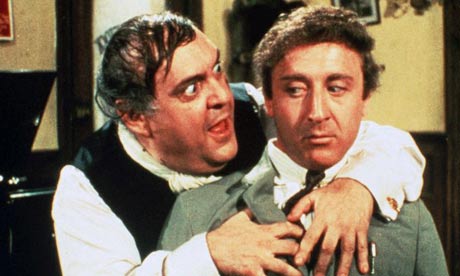
The starting point for the analysis of any cultural product (call it text, or whatever you please) is to see it as a productive system. It aims to produce a certain complex of effects upon the person who receives it, views it, interacts with it.
A work that can be said to fail, is a work that does not produce the effects for which it was intended. Artaud. Melville. Bialystock & Bloom.
When we talk about genre films, or genre fiction, we are referring to the effects that the work will visit upon us, the reason that we pick it up, go to the cinema. Action, romance. Each of these words conveys, in a broad sense, the set, or range of personal responses upon which the work will play. Failure then, is also a frustration of our expectation.
When we identify this range, we can then discuss technical and ideological issues. A certain method of montage, cinematographic style, etc., or gender roles, construction of space, etc. these can be assessed, broken up, and reinserted into the understanding as a whole. But technical and ideological are not separate. Not at all. Psycho-cam in Halloween, strong arms in Mills & Boon.
We must ask why our expected responses are played on in specific ways, what modes of behaviour this presumes, and what this (often publically enacted) call-response principle reinforces. Aka, why do boring people like stupid movies & why do artschool wankers like lame-ass pretentious movies?

No comments:
Post a Comment